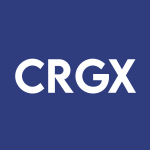Company Description
About Cargo Therapeutics (CRGX)
Cargo Therapeutics is a clinical-stage biotechnology company dedicated to advancing the field of cell therapies for cancer treatment. The company specializes in the development of next-generation chimeric antigen receptor (CAR) T-cell therapies, addressing critical limitations in existing treatments such as limited durability, suboptimal safety profiles, and unreliable supply chains. With a focus on hematologic malignancies, Cargo Therapeutics aims to provide potentially curative solutions for patients with high unmet medical needs.
Core Business and Lead Program
The company's flagship program, CRG-022 (firicabtagene autoleucel or firi-cel), is an autologous CD22-targeting CAR T-cell therapy designed to treat patients with large B-cell lymphoma (LBCL) who have relapsed or are refractory (R/R) to CD19 CAR T-cell therapies. CD22 is a tumor antigen expressed in the vast majority of B-cell malignancies, making it a compelling target for patients who have exhausted other treatment options. Firi-cel leverages Cargo's proprietary cell engineering technologies to enhance CAR T-cell persistence, mitigate resistance mechanisms, and improve patient outcomes.
Proprietary Platform Technologies
Cargo Therapeutics employs innovative platform technologies to overcome key challenges in CAR T-cell therapy, including T-cell exhaustion, tumor resistance, and limited trafficking to tumor sites. The company’s proprietary tri-cistronic CAR T technology allows for the expression of three independent CARs from a single vector, each with distinct co-stimulatory domains. This approach ensures sustained anti-tumor activity, preserves T-cell memory phenotype, and enhances long-term efficacy, even in heterogeneous tumor environments. These advancements position Cargo as a leader in the development of highly specialized and effective cell therapies.
Manufacturing and Scalability
Recognizing the importance of reliable supply chains in cell therapy, Cargo Therapeutics has invested in a commercial-ready manufacturing process. This strategy aims to ensure consistent product quality and scalability, which are critical for meeting the demands of clinical trials and eventual commercialization. The company's manufacturing approach integrates advanced technologies to streamline production while maintaining stringent safety and efficacy standards.
Market Position and Competitive Landscape
Cargo Therapeutics operates within the highly specialized field of oncology-focused cell therapies, particularly targeting hematologic malignancies like LBCL. The market for CAR T-cell therapies is competitive, with established players such as Gilead Sciences (Yescarta) and Novartis (Kymriah). However, Cargo differentiates itself through its focus on CD22 as an alternative target and its innovative engineering techniques designed to address the limitations of first-generation CAR T therapies. By targeting patients who have failed CD19-directed therapies, Cargo addresses a significant unmet need, positioning itself as a vital player in this therapeutic space.
Pipeline and Future Potential
Beyond its lead program, Cargo Therapeutics is developing a broader pipeline of CAR T-cell therapies that incorporate multiple transgene therapeutic "cargo" elements. These include enhancements to improve CAR T-cell trafficking, persistence, and resistance to tumor-induced immunosuppression. The company’s commitment to innovation is further demonstrated by its exploration of allogeneic CAR T-cell platforms, which aim to expand accessibility and reduce production timelines.
Expertise and Leadership
Cargo Therapeutics benefits from a team of pioneers and world-class experts in CAR T-cell therapy. The leadership team brings extensive experience in developing, manufacturing, and commercializing oncology and cell therapy products. This expertise underpins the company’s ability to navigate complex regulatory landscapes and deliver transformative therapies to patients.
Conclusion
With its focus on addressing the limitations of current CAR T-cell therapies, Cargo Therapeutics is poised to make a significant impact in the field of oncology. By leveraging cutting-edge technologies and targeting high-need patient populations, the company is advancing the boundaries of what is possible in cancer treatment. Cargo's innovative approach to cell therapy development positions it as a key player in the ongoing evolution of precision medicine and immuno-oncology.

